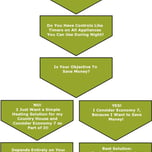Answer these simple questions and we will find you the BEST prices
Which type of solar quotes do you need?
It only takes 30 seconds
100% free with no obligation

Get up to 4 quotes from our selected suppliers by filling in only 1 form

Save money by comparing quotes and choosing the most competitive offer

Our service is 100% free and with no obligation
- GreenMatch
- Blog
- UK Renewable Energy: Facts & Stats
UK Renewable Energy: Facts & Stats
Learn About What Is Being Done Regarding Renewable Energy in the UK
Although this might not sound like the most entertaining Blog Post, hopefully, you are surprised by the numbers and tempted to contribute to the country's effort in changing to greener habits. Among other unhappy consequences, using non-renewable sources of energy leads to climate change, reduces species diversity and destroys our environment. This means a lower quality of life for us and for future generations.
Many countries, especially European, are implementing and developing new environmentally friendly policies and practices aiming at reducing carbon emissions. The UK is not an exception and in 2013 has invested a record amount of £8 billion in renewable technologies.
Some Numbers About the UK
The Department of Energy and Climate Change (DECC) has published the Digest of United Kingdom Energy Statistics for 2014, where they show the numbers of the country's energy sector and expose some interesting facts about renewable energy. For example, renewables accounted for 14.9% of UK electricity generated in 2013, which is 30% more than the share from 2012. In 2013 there was a switch in the main sources of electricity. Generation from coal fell by 8.7%, as several plants closed or switched to burning biomass. Also, due to high gas prices, gas fell by 4.5%. During 2012 and 2013 capacity for renewable energy generation grew by 27%.
Solar PV and solar heating contributed 3.3% of the total renewable energy mix. There are currently a bit more than 500,000 solar units installed on buildings around the country and the industry is expecting to increase the number to over 10 million by 2020. This will mean that solar energy will represent 40% of the country’s electricity needs.
A strong renewable energy sector leads to more energy independence since the country can use its own energy instead of relying heavily on foreign imports. It also contributes to tackling climate change and creates new hi-tech green jobs, which are huge benefits to society. However, fossil fuels still remain the dominant source of energy supply, accounting for around 85%.
What Can We Do?
If we analyse the energy consumption by the user, transport and domestic sectors account for 36% and 29% respectively. This means that there is a lot we can do as private users to reduce our energy consumption and that switching to green sources of energy will have a considerable impact. So we have two challenges:

Use Energy Wisely
For the first challenge, we should focus on using energy wisely. This means, walking or biking whenever we can, instead of using an engine-dependant transport system. This will also improve your health! It is also important to analyse what you do at home and what you buy.
To help to check your current situation, you should make some questions and see where you are standing. For example, am I wasting water? do I turn off the lights and other devices when I don’t need them? There are also buying habits that are important to revise, for instance buying fruits and vegetables that are not grown locally and are not from this season means that the product has travelled far to reach you. This means unnecessary carbon emissions. Try buying local products and preferably not very much industrialized. This is also good for your health!
Moreover, it is important to check how your house is built. By doing some changes to your house, you can optimize energy consumption by utilizing natural resources. Put simply, a house that is not properly insulated will require a lot of energy for heating and cooling. Instead, if you have double glaze windows and solid wall and floor insulation, you will require less artificial heating or cooling since your house will maximise the use of natural resources.
Change to Green Sources of Energy
The second challenge usually requires a bigger (but worth it!) investment. Many houses in the UK have already installed green energy systems, and so are benefiting from their own and clean electricity or green-powered heating mechanisms. Luckily, due to the increasing popularity of green sources of energy, the prices of the technologies have dropped considerably during the past years, making it more affordable to an increasing number of families.
There is a wide range of measures that you can choose from, and also some incentives from the government that you should check before your investment.
Some popular alternatives are solar energy and geothermal energy. In the first case, you can choose to install solar panels or a solar water heating system. Solar panels convert the energy of the sun into electricity available for household (can also be used for big companies and industries but we are now focusing on domestic behaviour) purposes.
A solar water heating system, also known as solar thermal, is used for water and space heating. Solar energy systems are known for being expensive, but this is not completely true and in fact, if you do a bit of research you will find out that you can actually make money out of them.
Geothermal energy systems can also be used at home for electricity and heating purposes. Heat pumps are increasingly popular and not very expensive.
If you have troubles finding a supplier or you are just lazy to do all the research required before investing in green sources of energy, you should visit GreenMatch.co.uk, where you have complete information about all these topics but most importantly, you can request quotes to suppliers. This service is free of charge and there is no obligation of buying. Suppliers will contact you with their offers and you can check if any of them suits your needs.
Fill in the form in just 1 minute
We strive to connect our customers with the right product and supplier. Would you like to be part of GreenMatch?




